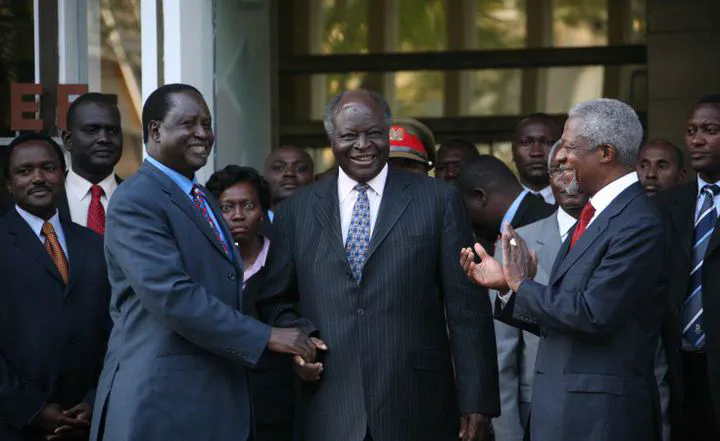Legitimacy, Capacity, and International Mediation in Civil Wars
 Kofi Annan successfully mediates in the 2007 elections crisis in Kenya
Kofi Annan successfully mediates in the 2007 elections crisis in Kenya
This book project challenges dominant views on civil war mediation by showing that mediator legitimacy – rather than economic or military power – is key to achieving lasting peace.
Most scholarship on international mediation sees success as a matter of material power. From this material-based perspective, third parties with economic or military might manipulating the bargaining process are the key to mediation success. This book challenges that view, arguing that legitimacy is equally, if not more, crucial. A mediator with legitimacy can persist in seeking a mutually acceptable outcome and influence parties toward compliance. Without legitimacy, even the most powerful mediators are likely to fail. Focusing on civil wars in Africa, the book develops a new theory showing how mediators succeed not through military or economic strength, but through legitimacy. It systematically compares African and non-African mediators, revealing that African third parties – often seen as weak – are surprisingly effective thanks to a widely shared commitment to the norm of African-led mediation. Using original data on mediation efforts from 1960 to 2023, as well as case studies from Angola, Sudan, and Burundi, the book shows that African mediators are more likely to achieve durable peace. This is the first comprehensive study to highlight the importance of legitimacy in civil war mediation and to question dominant materialist assumptions in the field.